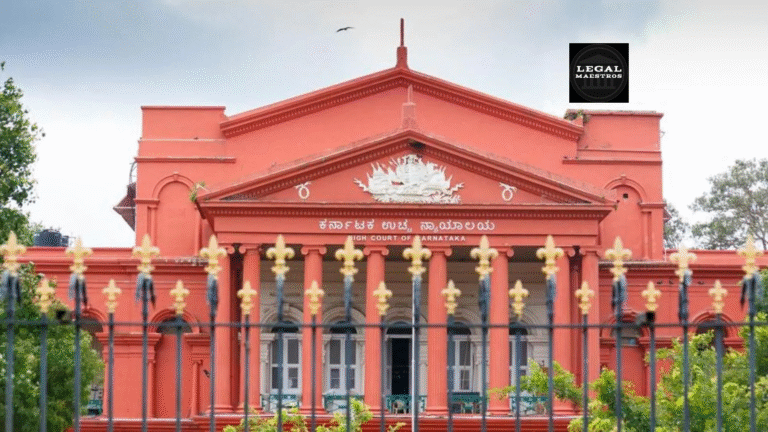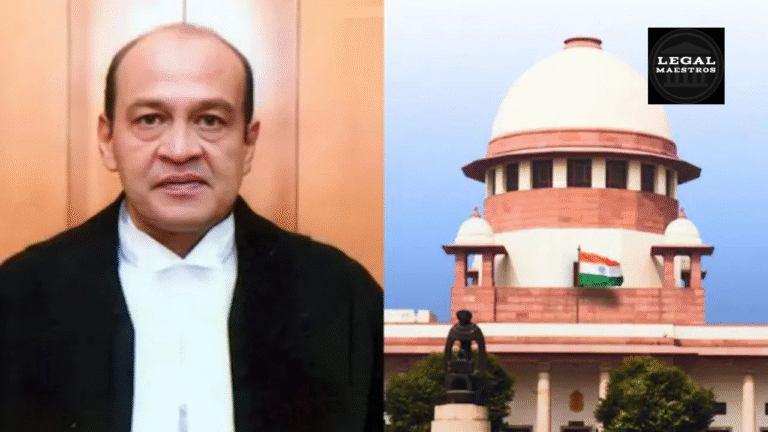
Sharmistha Panoli's Arrest by West Bengal Police: Legal Implications and Applicability of Bharatiya Nyaya Sanhita Sections on Religious Sentiments and Communal Harmon
Introduction
As a result of the recent arrest of Sharmistha Panoli by the West Bengal Police, a heated debate has arisen on the interpretation and application of the Bharatiya Nyaya Sanhita’s articles concerning religious feelings and communal harmony.
The case of Panoli, who is accused of posting content on social media that is supposedly inflammatory, investigates the tension that exists between the state’s responsibility to maintain public order and the right to freedom of expression (free speech).
Numerous provisions of the new criminal code are being proposed in response to the claims, the most prominent of which are those that deal to the willful contempt of religious beliefs and the incitement of hostility between different groups.
For More Updates & Regular Notes Join Our Whats App Group (https://chat.whatsapp.com/DkucckgAEJbCtXwXr2yIt0) and Telegram Group ( https://t.me/legalmaestroeducators ) contact@legalmaestros.com.
Background of the Arrest
At the end of May 2025, Sharmistha Panoli, who was residing in Kolkata at the time, was arrested and placed in prison after a local community leader filed a complaint against her.
The allegations stem from a series of posts that Panoli made on Facebook, in which he questioned a number of ritualistic practices and used language that was deemed offensive by members of a religious minority.
Within twenty-four hours, the police filed a First Information Report (FIR) alleging Section 196 of the Bharatiya Nyaya Sanhita for inciting discord and Section 297 for intentionally and maliciously engaging in contentious behavior with the goal of inflaming religious feelings.
Discussions over the wider applicability of these rules to speech on the internet were started as a result of the prompt response.
Legal Framework Under the Bharatiya Nyaya Sanhita
Many provisions of the Indian Penal Code were rendered obsolete by the Bharatiya Nyaya Sanhita (BNS), which was enacted in 2024 and incorporates some of the remaining sections.
It maintains and strengthens the prosecution of significant offenses that are related to public religion and peace. Section 196 of the BNS makes it unlawful to engage in activities that create enmity between different social groups or religious groups via the use of speech, sign language, or electronic interaction.
There is a distinct provision in Section 297 that addresses any deliberate behavior that is meant to insult or outrage the religious sensibilities of a group of individuals. Speaking words that are intended to hurt religious emotions are subject to considerably harsher penalties under Section 300.
The purpose of these sections, when viewed as a whole, is to maintain the peace within the community by restricting statements that might be considered provocative or harassing.
For More Updates & Regular Notes Join Our Whats App Group (https://chat.whatsapp.com/DkucckgAEJbCtXwXr2yIt0) and Telegram Group ( https://t.me/legalmaestroeducators )
Applicability of Section 196 of the BNS
The purpose of Section 196 of the BNS is to encourage hostility or hatred between groups that are distinctive from one another in terms of religion, caste, or community. This phrase encompasses a wide range of behaviors, from spoken declarations to postings made on the internet by individuals.
In the instance of Panoli, the police assert that her statements on social media were intended to foment animosity toward a religious community, which necessitates the possibility of criminal liability under this provision.
In order to sustain an allegation under Section 196, the prosecution must demonstrate that the content that was published was directly related to the tensions or disturbances that occurred within the community.
The practice of just voicing critical opinions without the intention of inciting hatred or violence is a violation of the constitutional protections afforded to free speech.
Scope of Section 297 and 300 of the BNS
The act of criticizing a religion or the ideas that it upholds is considered to be “deliberate and malicious acts, intended to outrage religious feelings” according to Section 297. In the meanwhile, Section 300 sanctions statements that are either uttered or written with the intention of offending religious beliefs.
Both offenses require monetary penalties or a maximum sentence of three years in jail. The primary difference is in the characteristics of the act: It is necessary to provide proof of a purposeful design to offend, as stipulated by Section 297, while Section 300 covers the intent to cause emotional distress.
Prosecutors have asserted that Panoli’s comments constitute deliberate insult rather than just criticism in the case that they are investigating. In order to determine whether her comments were factual criticism or if they represented an underlying desire to agitate and insult, the courts will need to investigate.
Fundamental Issues Raised by the Arrest
Important constitutional questions are brought up by Panoli’s subsequent arrest. Initially, it investigates the boundary that exists between the permissible criticism of religious practice and the prohibited expression of hatred.
A right to free expression is granted under Article 19(1)(a) of the Constitution, although it is subject to reasonable constraints for the purpose of maintaining public order. However, these limitations must be precisely targeted in order to be considered reasonable.
Second, the use of many BNS sections for a single social media post brings to light concerns over the excessive criminalization of certain activities. Some people believe that the expansive language of the new code might make it difficult for academics or the media to criticize religious practices, which would result in the suppression of honest debate in a society that is rich in diversity.
Judicial Standards for Intent and Context
Culpability is mandated by the BNS in accordance with Sections 196, 297, and 300, and it is contingent upon the goals of the accused and the circumstances surrounding the statement.
Even if it offends certain people, a statement of view that is made in good faith and with sincerity must be separated from speech that is intended to incite hatred or to anger religion, according to the decisions of the courts.
The judges who are assessing Panoli’s posts will be required to take into consideration the language that was used, the reach of the platform, and any evidence that there was a deliberate attempt to exacerbate communal tensions. The absence of concomitant violence or quick upheaval would be sufficient to establish the right to free expression in the event that there is no direct provocation revealed.
Procedural Safeguards and Bail Considerations
Following her imprisonment, Panoli made a plea for release on the grounds that her posts did not advocate physical violence and did not constitute hostile behavior.
According to the BNS, legal precedents suggest that courts should have the authority to grant bail in situations where the charges do not show any significant threats to public order or safety.
It is argued by those who disagree with the decision of the trial court to remand Panoli for a period of two weeks that the prolonged pretrial detention violates her basic rights. Under the BNS, the guidelines that the Supreme Court has established regarding bail emphasize the need of striking a balance between the accused’s right to liberty and the imperative to prevent the tampering of evidence or other infractions.
Comparative Perspectives on Hate Speech Laws
In spite of the fact that it adheres to worldwide trends in terms of suppressing hate speech, India’s approach under the BNS demonstrates locally sensitive behavior. Legal law often requires a high degree of purpose and harm, despite the fact that many democracies ban the incitement of hatred or violence aimed against protected groups.
These high-threshold aspects are maintained by the BNS in Sections 196 and 297; nonetheless, the overall wording of the BNS carries the risk of embracing criticism that does not include violence.
Therefore, the case of Panoli is an examination of whether or not India’s newly enacted criminal regulations will protect disadvantaged regions without needlessly restricting the right to express oneself.
Implications for Online Expression
The circulation of ideas has been altered as a result of social media, which poses a challenge to the legal enforcement of social harmony.
The confinement of Panoli in accordance with Sections 196, 297, and 300 brings to light the challenge of policing content on the internet that has the potential to offend but does not explicitly encourage acts of violence.
It is necessary for the judicial system and government officials to adapt to the changing times and differentiate between orchestrated propaganda and personal views. Because of the outcome of Panoli’s trial, it is likely that criteria for platform responsibility and user accountability will be established under the BNS, and that these standards will regulate future regulation of online speech.
Potential Reforms and Judicial Guidance
In order to properly guide the application of Sections 196, 297, and 300, commentators have suggested that improvements be made to legislative definitions or explanatory notes.
Clarity from the judiciary on the requisite purpose and the evidence needed to demonstrate malevolent intent might be helpful in reducing the number of arbitrary arrests that occur in borderline cases.
The Supreme Court may also take into consideration the potential of establishing regulations for the use of the BNS on digital platforms. This would ensure that the procedures are carried out in a fair manner and would reduce the likelihood that dissatisfied complainants would abuse the system.
Conclusion
Arrests made in accordance with Sections 196, 297, and 300 of the Bharatiya Nyaya Sanhita Sharmistha Panoli bring up basic concerns about the bounds of criminal law, as well as the possibility of free speech and the unity of communities.
The courts have a responsibility to ensure that they do not permit disproportionate restrictions on the expression of truthful criticism of religion or communal conflicts while they are deliberating.
As a result of this ruling, the limitations of expression on the internet in India will be defined, and it will be determined whether or not the BNS strikes a proper compromise between protecting constitutional freedoms and protecting religious sensitivities.




